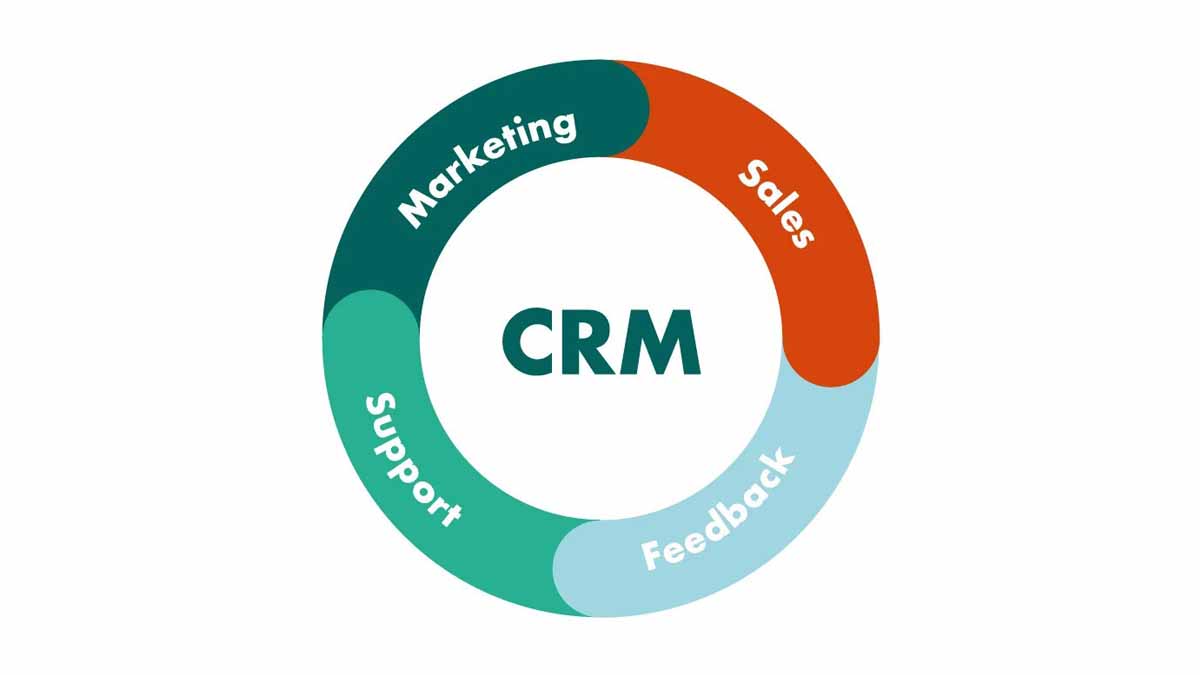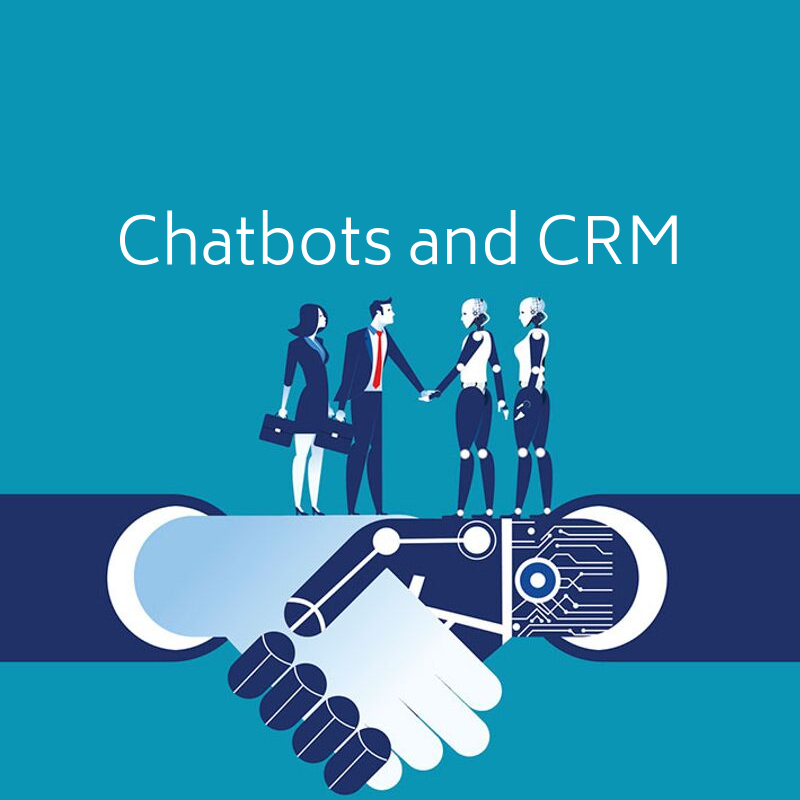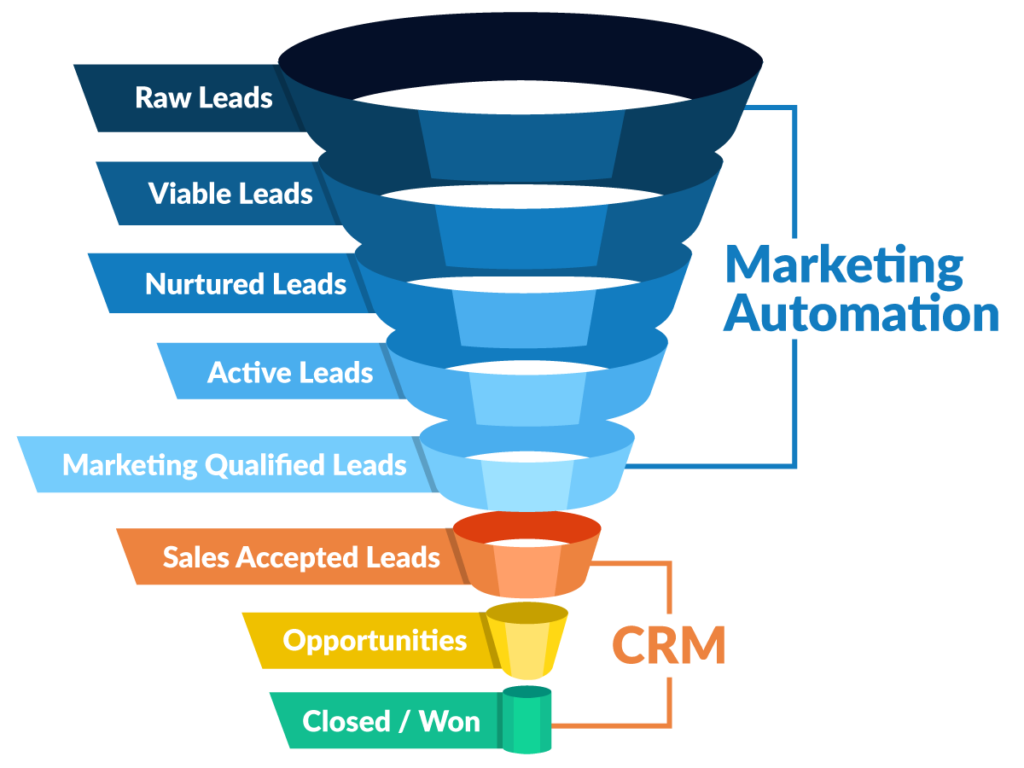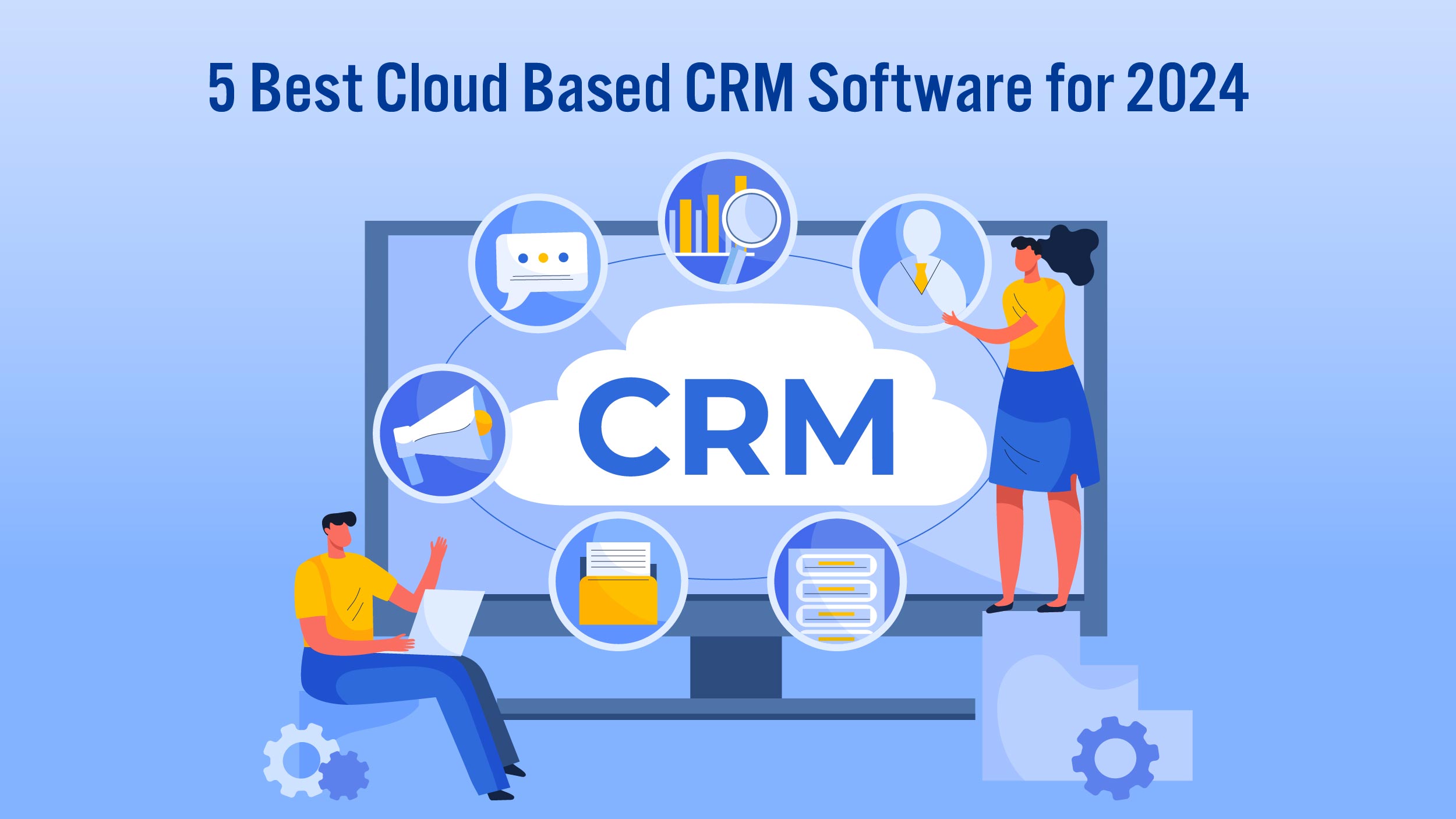AI-Powered CRM Software: Revolutionizing Customer Relationship Management
AI-Powered CRM Software introduces a groundbreaking approach to managing customer relationships, leveraging the power of artificial intelligence to enhance personalization, streamline processes, and drive business growth. Dive into the world of AI-powered solutions that are reshaping the way businesses interact with their customers.
Importance of AI in CRM
Artificial Intelligence (AI) plays a crucial role in improving customer relationship management (CRM) by enhancing the overall customer experience and increasing operational efficiency. AI empowers CRM software to analyze vast amounts of customer data and provide personalized interactions, ultimately leading to stronger customer relationships and increased customer satisfaction.
Implementing AI in Sales Forecasting
Using AI in sales forecasting offers numerous benefits, such as more accurate predictions, improved decision-making, and increased sales performance. Integrating AI algorithms into sales forecasting models involves gathering historical sales data, selecting appropriate algorithms, training the models, and validating the results. By training AI models with accurate historical sales data, businesses can achieve more precise forecasting results and make informed decisions to drive revenue growth.
Enhancing Customer Support with AI Chatbots
AI chatbots revolutionize customer support services by providing instant responses to customer inquiries, resolving issues efficiently, and offering 24/7 support. These chatbots can streamline customer interactions, handle repetitive tasks, and escalate complex issues to human agents when necessary. Training AI chatbots involves programming them with a wide range of responses, scenarios, and knowledge bases to effectively address customer queries and provide exceptional support.
Leveraging AI for Marketing Automation
AI technology enhances marketing automation by optimizing campaigns, generating leads, and analyzing customer behavior to create targeted strategies. AI tools automate tasks like email campaigns, social media targeting, and personalized content recommendations based on customer preferences. By leveraging AI in marketing efforts, businesses can increase efficiency, drive engagement, and deliver more relevant marketing messages to their target audience.
AI-Powered Data Analysis
AI-powered data analysis in CRM involves leveraging artificial intelligence algorithms to extract valuable insights from customer data. These algorithms utilize machine learning techniques such as clustering, classification, and natural language processing to enhance the data analysis process.
Role of AI Algorithms in CRM Data Analysis
AI algorithms in CRM data analysis play a crucial role in revolutionizing how businesses understand and interact with their customers. By automating the analysis of vast amounts of data, AI enables organizations to gain actionable insights quickly and accurately. Compared to traditional methods like manual segmentation and basic statistical analysis, AI-powered data analysis offers significant advantages in terms of speed, accuracy, and scalability.
- Speed: AI algorithms can process large volumes of data at a much faster pace than manual methods, allowing businesses to make real-time decisions based on up-to-date information.
- Accuracy: AI-powered data analysis reduces the margin of error by eliminating human bias and inconsistencies, leading to more precise insights and predictions.
- Scalability: AI models can scale effortlessly to handle increasing amounts of data without compromising performance, making them ideal for businesses of all sizes.
Predictive Analytics with AI in CRM
Predictive analytics is a key application of AI in CRM, enabling businesses to forecast customer behavior, identify trends, and optimize marketing campaigns based on historical data. AI models can analyze past interactions and behaviors to predict future outcomes, empowering organizations to personalize customer experiences and drive business growth.
AI-powered predictive analytics can help businesses anticipate customer needs, optimize sales strategies, and enhance customer satisfaction by delivering targeted and relevant offerings.
Commonly Used AI Tools in CRM Data Analysis
There are several AI tools commonly used in CRM data analysis, including Salesforce Einstein, IBM Watson, and Microsoft Dynamics AI. These platforms leverage AI capabilities to empower businesses to extract valuable insights, streamline processes, and drive intelligent decision-making in customer relationship management.
Personalization Capabilities
Personalization is a key aspect of customer relationship management (CRM) as it allows businesses to tailor their interactions with customers based on their preferences and behaviors. Utilizing AI-powered CRM software enables companies to collect and analyze customer data to create personalized experiences that drive customer loyalty and satisfaction.
Importance of Collecting Customer Data for Personalization
Collecting customer data is crucial for personalization as it provides valuable insights into individual preferences, purchasing patterns, and behaviors. AI algorithms can analyze this data to understand customer needs and deliver targeted content, promotions, and recommendations.
Examples of AI Analyzing Customer Behavior for Personalized Experiences
– AI can track customer browsing history to recommend products or services that align with their interests.
– Machine learning algorithms can analyze past purchase behavior to predict future buying patterns and offer personalized product suggestions.
– AI chatbots can engage with customers in real-time, providing personalized responses based on previous interactions.
Role of Machine Learning Algorithms in Predicting Customer Preferences
Machine learning algorithms play a crucial role in predicting customer preferences by analyzing large volumes of data to identify patterns and trends. By learning from past interactions, these algorithms can anticipate customer needs and tailor recommendations accordingly.
Ethical Considerations in Using AI for Personalization
It is essential for businesses to uphold ethical standards when using AI for personalization. This includes obtaining customer consent for data collection, ensuring data security and privacy, and being transparent about how AI is being used to personalize experiences.
Real-Time Data Processing for Enhanced Personalized Recommendations
Real-time data processing allows businesses to deliver personalized recommendations to customers instantly. By analyzing data as it is generated, AI can provide relevant offers, content, and suggestions in the moment, increasing the likelihood of customer engagement and satisfaction.
Automation in CRM
AI plays a crucial role in automating routine tasks within CRM systems, revolutionizing the way businesses manage customer relationships. By leveraging AI-driven automation, organizations can streamline their sales and marketing processes, leading to increased efficiency and improved customer interactions.
Efficiency Gains from AI-Driven Automation
- AI automates data entry tasks, reducing manual errors and saving time for employees.
- Automated lead scoring and prioritization help sales teams focus on high-potential prospects, leading to higher conversion rates.
- Automated email campaigns based on customer behavior and preferences enhance marketing effectiveness.
Role of AI in Streamlining Sales and Marketing Processes
- AI analyzes customer data to provide personalized product recommendations, improving cross-selling and upselling opportunities.
- Automated chatbots powered by AI can handle customer inquiries and support, enhancing the customer experience.
- AI-enabled predictive analytics helps forecast sales trends and optimize marketing strategies for better results.
Tasks AI Can Automate in CRM Systems
- Lead scoring and qualification
- Customer segmentation and targeting
- Automated email campaigns
- Data entry and updating
- Customer support through chatbots
Impact of AI Automation on Customer Relationship Management
AI automation leads to improved customer satisfaction, increased sales productivity, and enhanced decision-making based on data-driven insights. By automating repetitive tasks, businesses can focus on building stronger relationships with customers and driving revenue growth.
Challenges and Benefits of Integrating AI into CRM Automation
- Challenges: Initial investment costs, integration complexities, and data privacy concerns
- Benefits: Increased efficiency, improved accuracy, enhanced personalization, and competitive advantage
Examples of Successful AI-Driven Automation in CRM
- Amazon uses AI to recommend products based on customer browsing and purchase history.
- Salesforce’s Einstein AI analyzes customer data to provide predictive lead scoring for sales teams.
Cost Savings Associated with AI Automation in CRM
AI automation in CRM reduces operational costs by eliminating manual tasks, improving workforce productivity, and driving revenue growth through targeted marketing campaigns.
Customer Insights and Segmentation
Customer insights and segmentation play a crucial role in understanding the diverse needs and preferences of customers. AI technology has revolutionized how businesses analyze customer behavior and segment their target audience for more personalized interactions and targeted marketing strategies.
AI Analysis for Customer Segmentation
AI-powered CRM software utilizes advanced algorithms to analyze vast amounts of customer data in real-time. By tracking customer interactions, purchase history, social media activity, and other relevant data points, AI can identify patterns and trends to categorize customers into specific segments based on their behavior, preferences, and demographics.
- AI algorithms can identify similarities and differences among customers to create distinct segments.
- By analyzing past interactions, AI can predict future behaviors and preferences of customers.
- Segmentation allows businesses to tailor their marketing efforts and customer experiences to meet the unique needs of each segment.
Significance of AI-Generated Insights
AI-generated insights provide businesses with a deeper understanding of their customers, enabling them to create more targeted and personalized marketing campaigns. By leveraging AI technology, businesses can enhance customer engagement, improve loyalty, and drive sales by delivering the right message to the right audience at the right time.
AI insights help businesses identify high-value customers, predict customer churn, and optimize cross-selling and upselling opportunities.
Enhanced Customer Segmentation Strategies
AI enhances customer segmentation strategies by enabling businesses to create dynamic and flexible segments that adapt to changing customer behaviors and preferences. By continuously analyzing customer data and updating segmentation models in real-time, businesses can ensure that their marketing efforts remain relevant and effective.
- AI helps businesses identify micro-segments within larger customer segments for more targeted marketing campaigns.
- By automating the segmentation process, AI saves time and resources while improving the accuracy of segment identification.
- Personalized recommendations and product suggestions based on AI segmentation lead to higher customer satisfaction and loyalty.
Integration with Communication Channels
AI-powered CRM software plays a crucial role in integrating with various communication channels to enhance customer engagement and optimize interactions. By leveraging artificial intelligence, CRM systems can streamline communication processes and provide a seamless experience for both businesses and customers.
AI-Enhanced Customer Engagement
AI-powered CRM software enables businesses to engage with customers across multiple channels, including email, social media, chatbots, and phone calls. For example, AI algorithms can analyze customer interactions in real-time to personalize responses and offer relevant solutions. This level of automation and personalization leads to higher customer satisfaction and loyalty.
- AI chatbots: AI-powered chatbots can efficiently handle customer inquiries, provide instant responses, and escalate complex issues to human agents when necessary.
- Personalized emails: AI algorithms can analyze customer data to create personalized email campaigns, increasing open rates and conversion rates.
- Social media monitoring: AI tools can monitor social media platforms for customer mentions, sentiment analysis, and engagement opportunities, allowing businesses to respond promptly and effectively.
Benefits of Seamless Communication Integration
The seamless integration of communication channels in CRM software offers numerous benefits for businesses, including increased efficiency, enhanced customer satisfaction, and improved decision-making processes. By having a centralized platform that consolidates customer interactions from various channels, businesses can gain valuable insights, track customer journeys, and deliver a consistent experience across touchpoints.
- Improved customer service: AI-powered CRM software ensures quick and accurate responses to customer inquiries, leading to higher customer satisfaction and retention rates.
- Enhanced marketing campaigns: By integrating communication channels, businesses can deliver targeted messages and offers to customers based on their preferences and behavior, resulting in higher engagement and conversion rates.
- Data-driven decision-making: AI-powered data analysis tools can provide valuable insights into customer behavior and trends across different channels, enabling businesses to make informed decisions and optimize their strategies.
Scalability and Flexibility
AI plays a crucial role in enhancing the scalability and flexibility of CRM solutions, allowing businesses to adapt and grow in a dynamic environment. By leveraging AI technology, organizations can customize CRM functionalities to meet specific requirements and automate processes to improve scalability.
Adapting AI-Powered CRM Systems
AI-powered CRM systems are designed to evolve with changing business needs, providing the flexibility to customize functionalities based on specific requirements. For example, AI algorithms can analyze customer data in real-time, allowing businesses to tailor their interactions and services according to individual preferences.
- AI can automate routine tasks in CRM systems, such as data entry and lead scoring, freeing up valuable time for employees to focus on more strategic initiatives.
- Integrating AI algorithms into CRM platforms involves identifying key data points, training machine learning models, and continuously optimizing the system for improved flexibility and performance.
- Real-time data analysis powered by AI enables businesses to gain valuable insights into customer behavior and preferences, supporting scalability by identifying opportunities for growth and expansion.
Leveraging AI for Personalized Interactions
One of the key benefits of using AI in CRM is the ability to personalize customer interactions and adapt to changing business dynamics. AI algorithms can analyze vast amounts of data to deliver personalized recommendations, offers, and support to customers in real-time.
- By leveraging AI, businesses can create tailored marketing campaigns, product recommendations, and customer service experiences based on individual preferences and behaviors.
- AI-driven insights enable businesses to anticipate customer needs and provide proactive solutions, enhancing customer satisfaction and loyalty.
- Best practices for leveraging AI in CRM include regularly updating and refining algorithms, integrating AI tools with existing systems, and ensuring data accuracy and security for personalized interactions.
Enhanced Lead Management
AI plays a crucial role in optimizing lead scoring and management within CRM systems. By leveraging AI capabilities, businesses can effectively identify and prioritize high-quality leads, leading to improved conversion rates and overall sales performance.
Optimized Lead Scoring
AI-powered CRM software utilizes advanced algorithms to analyze various data points and behaviors of leads, allowing for more accurate lead scoring. This automated process helps sales teams focus their efforts on leads that are most likely to convert, increasing efficiency and productivity.
Impact on Lead Nurturing
AI enhances lead nurturing processes by providing personalized and timely interactions with leads. Through AI-driven insights, businesses can deliver relevant content, offers, and follow-ups based on each lead’s preferences and behavior, fostering stronger relationships and increasing the chances of conversion.
Improved Lead Conversion Rates
With AI-powered CRM, businesses have seen significant improvements in lead conversion rates. By streamlining lead management, optimizing lead scoring, and enabling personalized interactions, AI helps businesses engage leads more effectively and convert them into customers at a higher rate.
Customer Service and Support
AI plays a crucial role in enhancing customer service and support through CRM systems. By leveraging AI technology, businesses can streamline their customer interactions, provide personalized support, and resolve queries efficiently.
AI-Powered Chatbots and Virtual Assistants
AI-powered chatbots and virtual assistants have revolutionized customer support by providing instant responses to customer queries 24/7. These intelligent bots can handle a wide range of customer issues, from basic inquiries to complex problem-solving, improving overall customer satisfaction.
- Chatbots can engage with customers in real-time, providing quick and accurate responses to common questions.
- Virtual assistants can assist customers with product recommendations, troubleshooting, and even scheduling appointments.
- AI algorithms enable chatbots to learn from past interactions and continuously improve their responses, leading to more effective and personalized customer support.
Efficient Resolution of Customer Queries
AI plays a crucial role in resolving customer queries efficiently by analyzing data, understanding customer preferences, and predicting future needs. Through AI-powered CRM systems, businesses can provide proactive support and address issues before they escalate, ultimately enhancing the overall customer experience.
- AI algorithms can analyze customer data and interactions to identify patterns and trends, allowing businesses to anticipate customer needs and preferences.
- By automating repetitive tasks and standardizing responses, AI helps customer service teams focus on more complex inquiries, improving efficiency and effectiveness.
- AI-powered analytics provide valuable insights into customer behavior, enabling businesses to tailor their support strategies and communication channels to meet individual needs.
Security and Data Privacy
AI plays a crucial role in ensuring data security and privacy within CRM software. By leveraging advanced algorithms and machine learning capabilities, AI can help prevent data breaches and unauthorized access, safeguarding sensitive information and maintaining the integrity of CRM systems.
AI-Powered Security Measures
- AI-driven anomaly detection: AI algorithms can analyze patterns of user behavior and system activities to identify any unusual or suspicious actions that may indicate a security threat.
- Behavior-based authentication: AI can verify user identities based on their typical behavior, such as typing speed, mouse movements, and browsing habits, adding an extra layer of security beyond traditional password protection.
- Real-time threat detection: AI systems continuously monitor CRM platforms for potential security risks, quickly detecting and responding to any anomalies or threats as they arise.
Encryption Techniques and Data Security
AI utilizes encryption techniques to protect sensitive data within CRM software. Through encryption, AI can secure information by converting it into a coded format that can only be accessed by authorized users with the appropriate decryption keys, ensuring data confidentiality and integrity.
Multi-Factor Authentication with AI
- AI-powered multi-factor authentication: By incorporating AI technology, CRM systems can implement multi-factor authentication processes that require users to provide multiple forms of verification, such as passwords, biometrics, and one-time codes, for enhanced data protection.
- Adaptive security measures: AI can adapt and adjust security protocols based on user behavior and system dynamics, enabling dynamic responses to evolving security threats and ensuring robust protection against unauthorized access.
Training and Adoption
Training users to adopt AI-powered CRM software is crucial for maximizing the potential benefits of the technology. It involves educating employees on how to effectively use the AI capabilities to enhance customer relationships and streamline business processes.
Training Process
When onboarding employees onto AI-driven CRM platforms, it is essential to provide comprehensive training sessions that cover the following key areas:
- Understanding the basics of AI technology and its applications in CRM
- Learning how to navigate and utilize the AI-powered features of the CRM software
- Practicing hands-on exercises to apply AI algorithms for data analysis and customer insights
- Receiving ongoing support and guidance from AI experts or trainers
Best Practices
Effective onboarding strategies for adopting AI technology in CRM include:
- Creating a structured training program with clear objectives and learning outcomes
- Providing access to online resources, tutorials, and user guides for self-paced learning
- Encouraging collaboration and knowledge sharing among employees to foster a culture of continuous learning
- Offering incentives or rewards for employees who demonstrate proficiency in using AI-powered CRM tools
Overcoming Challenges
Challenges in adopting AI technology in CRM can be addressed by:
Identifying specific pain points or areas where AI can add value to the CRM processes
Engaging in pilot projects or small-scale implementations to test and refine AI solutions before full deployment
Providing ongoing support and training to address any resistance or concerns from employees
Ensuring data security and compliance with regulations to build trust in the AI-powered CRM system
Cost and ROI Analysis
Implementing AI-powered CRM software comes with certain cost implications that organizations need to consider. The initial investment in acquiring the software, customization, and training can be significant. However, the return on investment (ROI) from utilizing AI in CRM systems can be substantial in the long run.
Cost Implications
- Cost of acquiring AI-powered CRM software licenses
- Cost of customization and integration with existing systems
- Cost of training employees to use the new software effectively
- Maintenance and support costs
ROI from AI Integration
- Improved efficiency and productivity leading to cost savings
- Enhanced customer experience and satisfaction, leading to increased sales and customer retention
- Better decision-making through data-driven insights, leading to increased revenue
- Automation of repetitive tasks, freeing up employees for more strategic work
Industry Applications
AI-powered CRM software is revolutionizing the way businesses across various industries manage their customer relationships. By leveraging the power of artificial intelligence, organizations can streamline processes, gain valuable insights, and enhance customer experiences.
Healthcare
In the healthcare industry, AI-powered CRM software can help healthcare providers better understand patient needs, personalize care plans, and improve patient outcomes. By analyzing patient data, medical histories, and treatment plans, healthcare organizations can deliver more personalized and effective care.
Retail
For retail businesses, AI in CRM enables personalized recommendations, targeted marketing campaigns, and efficient inventory management. By analyzing customer behavior and preferences, retailers can create tailored shopping experiences that drive customer loyalty and increase sales.
Financial Services
Financial institutions use AI-powered CRM software to enhance customer engagement, detect fraud, and optimize financial planning. By analyzing customer transactions, spending patterns, and risk profiles, financial services companies can offer personalized financial advice and services tailored to individual needs.
Manufacturing
In the manufacturing sector, AI in CRM helps streamline supply chain management, predict maintenance needs, and improve customer service. By analyzing production data, inventory levels, and customer feedback, manufacturers can optimize operations, reduce downtime, and enhance customer satisfaction.
AI-Powered Personalization in E-commerce
In the world of e-commerce, AI-powered personalization has become a game-changer, revolutionizing the way online retailers interact with their customers. By leveraging advanced algorithms and machine learning, e-commerce platforms can now provide tailored shopping experiences that cater to the unique preferences and needs of each individual user.
Impact of AI on Personalized Recommendations
AI has significantly improved the customer experience in online retail by offering personalized product recommendations based on past behavior, preferences, and demographic information. This level of customization not only enhances user satisfaction but also increases sales and conversions for e-commerce businesses.
- AI analyzes customer data to create personalized recommendations
- Machine learning algorithms predict user preferences and behavior
- Personalized product suggestions lead to higher engagement and sales
Implementing AI-Driven Personalization Strategies
There are various approaches to implementing AI-driven personalization strategies in e-commerce, such as collaborative filtering, content-based filtering, and hybrid methods. Each method has its own advantages and challenges, but the goal remains the same – to provide a seamless and tailored shopping experience for customers.
AI-driven personalization strategies aim to enhance user engagement and increase sales by offering relevant product recommendations.
Role of AI-Powered Chatbots in Customer Support
AI-powered chatbots have become instrumental in providing personalized customer support in online stores. These intelligent bots can interact with customers in real-time, answer queries, offer product recommendations, and even assist in the purchasing process. By leveraging natural language processing and machine learning, chatbots enhance the overall customer experience and streamline the support process.
- AI chatbots offer personalized assistance to customers
- Enhanced customer support leads to higher satisfaction and loyalty
- Chatbots can handle multiple queries simultaneously, improving efficiency
Last Word
In conclusion, AI-Powered CRM Software offers a glimpse into the future of customer relationship management, where data-driven insights and automation play a pivotal role in creating seamless experiences for both businesses and consumers alike. Embrace the evolution of CRM technology and unlock new possibilities for your organization today.



